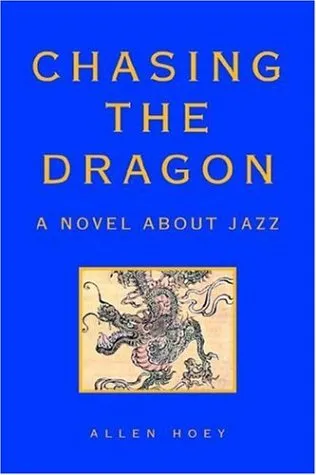Chasing the Dragon
By (author): "Allen Hoey"
ISBN142571384X
ISBN139781425713843
AsinChasing the Dragon
Original titleChasing the Dragon: A Novel About Jazz
On May 25, 1955, the body of jazz tenor saxophonist Wardell Gray is discovered in the desert outside Las Vegas. The death is ruled an overdose, but jazz columnist Nick Flynn, a friend of Wardell's, is not satisfied with that finding. While covering the jazz beat from coast-to-coast for his new column, "Road Notes," Nick begins his own investigation into Wardell's death. Jazz musicians and street junkies alike warn Nick against his involvement in the case. Interspersed through Nick's travels are chapters that portray the lives of several prominent jazz musicians of the period, including Billie Holiday, Coleman Hawkins, Art Pepper, Thelonius Monk, and John Coltrane. Nick's pursuit of the truth takes him from the East Coast to the West and back, encountering crooked cops and mobsters, as well as jazz musicians, as he tries to make the pieces come together.< br> < center> < text size=+1> < b> Critical Praise for Allen Hoey< /center> < /text> < /b> < br> " Allen Hoey, in his sprawling, muscular novel, < i> Chasing the Dragon< /i> -part mystery, part monolog, part picaresque-introduces Nick Flynn, a jazz critic in hot pursuit of a mystery that haunts him: the death of jazz legend, and Nick's friend, Wardell Gray. Stretching from coast to coast in Fifties America, < i> Dragon< /i> is a powerful narration. Along the way we encounter many jazz icons, including Art Pepper, Coleman Hawkins, and John Coltrane. Rich in character and plot, it is mesmerizing-and never more so than in Hoey's richly nuanced language: at times stark and Hemingwayesque, at others super-heated to a Faulknerian riff of diction, sentencing and imagery, such as in his periodic 4Interludes,4 monologs in the voices of various jazz greats. Like smoke in a dimly-lit jazz joint, Hoey's language will permeate your consciousness long after you have read the last page and turned off your reading lamp." < br> < center> -George Drew, < i> The Horse's Name Was Physics< /i> < /center> < br> " The directness of Allen Hoey's poems amounts at times almost to a kind of existential obduracy, the smack of a fist in a palm that means: no more bravery, the job is being. Being in the world. When you put this together with Hoey's marvelous vocabulary and his exacting rhythmic and tonal demands on our language, you get what no academic poetry can ever attain, real pertinence. Nowadays all of us are reading for our live, I think. These poems are what we need." < center> -Hayden Carruth< /center>

